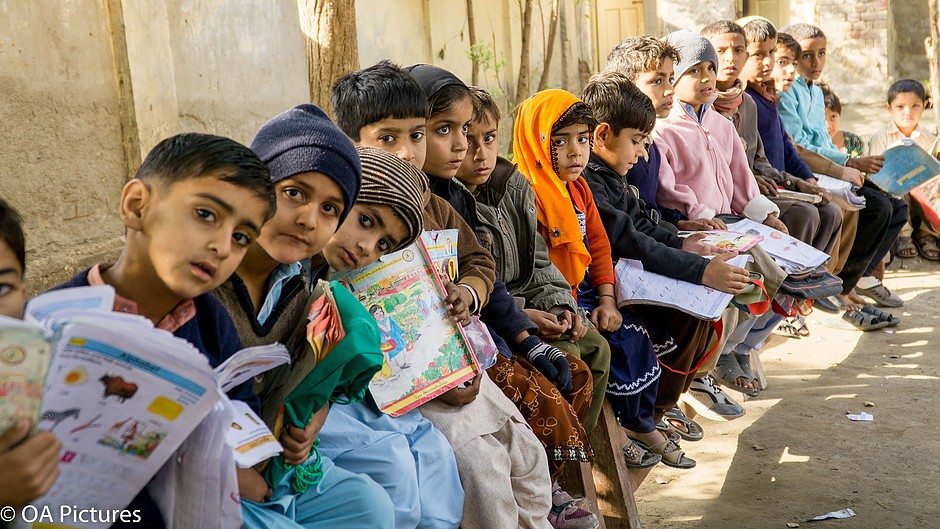Disclaimer: Website Under Maintenance: Our website is currently under maintenance. We apologize for any inconveniences.

The close collaboration of civil society and the Global Partnership for Education (GPE) is essential in ensuring education is a top priority on the development agenda. As civil society, we can help to bring together a wide range of voices and perspectives, mobilizing organizations and citizens and representing their views in official policy spaces – including those not usually heard in policy-making. This includes working at the national level to influence education policy development but also globally to engage with decision making at the GPE Board.
GPE reserves three seats for civil society organizations on its Board of Directors, thereby ensuring active citizen participation in its governance. Along with Cheikh Mbow from Senegal, I represent civil society from the global South (CSO 2). Together with colleagues who represent the teaching profession (CSO 3) and the global North (CSO 1), we work to incorporate civil society voices in shaping global policies.
I feel privileged to have been elected by my fellow civil society activists to represent such a huge and diverse constituency. Across the global South, from Afghanistan to Zimbabwe, we work with thousands of organizations, encompassing multiple languages, time zones, and regions. These organizations vary enormously - from large NGOs to small grassroots networks - so as to give voice to all sections of society (for example, women and girls, young people, persons with disabilities, and rural and indigenous communities).
Ensuring meaningful and sustained engagement from civil society means finding ways to gather these diverse citizens' voices effectively all year round and to channel them into GPE's decision-making spaces, both at the biannual Board meetings, and over the year. For this reason, our constituency held a strategic meeting last December ahead of the GPE Board meeting in Siem Reap, Cambodia. Regional representatives came together from the Civil Society Education Fund (CSEF) - a global program that we run and which supports civil society engagement in education sector processes in over 60 countries.
The networks supported by the CSEF include the Asia South Pacific Association for Basic and Adult Education (ASPBAE), the Latin American Campaign for the Right to Education (CLADE), the Africa Network Campaign for Education for All (ANCEFA), and the Arab Campaign for Education for All (ACEA).
Through vibrant group discussions, we were able to gather rich feedback from across the regions which, as a constituency, serves to further improve our engagement with, and strengthen our input to, the GPE Board. In particular, the team strategized around how to deepen engagement going forward, and how to bring the voices from across diverse regions in the GPE developing country partners, including: Africa, Asia, Latin America and the Caribbean, the Middle East, and Eastern Europe.
The sheer diversity of civil society organizations in these different regions - which constitutes literally thousands of organizations working in many different languages! - to improve the coordination of our inputs is an ongoing challenge, but one which we take very seriously. We made excellent headway, nominating regional and language support teams to help improve engagement. We also had robust and detailed discussions of the GPE Board agenda items - with the team giving inputs into how I should now represent their voice in the discussions at the Board.

We were also joined by colleagues from national coalitions in Zimbabwe and Ethiopia, who were awaiting a decision linked to their GPE grant applications. A major win for advancing education in these countries was secured when the GPE Board approved $90.6 million to support the strengthening both countries' education sectors over the coming years.
Civil society representatives were also invited to a meeting of developing country partners, which involved a positive and fruitful discussion about how we work together at country level, for example how to improve citizens' participation in local education groups (LEGs) - a presence which is already highly valued. It was fantastic to receive feedback on the vital role civil society plays in holding governments accountable for delivering the right to education.
Going forward, seizing on the momentum built by our meetings in Cambodia, we will continue to ensure we bring the voices of the many citizens we represent to the fore.
Since a fresh round of democratic processes is currently under way to elect new representatives to the GPE Board, there is no doubt that civil society engagement and collaboration with GPE will continue with enthusiasm and vigor.
About the writer: Ms. Zehra Arshad, She is the National Coordinator at Pakistan Coalition for Education.